Can You Die Of A Broken Heart?
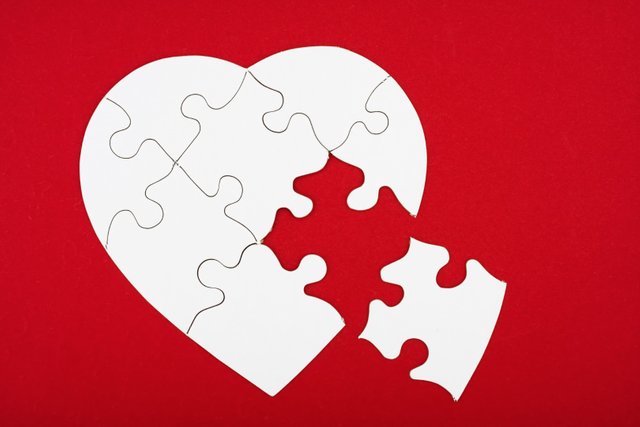
Introduction
The death of actress Debbie Reynolds [4] towards the end of 2016 within a day of the death of her daughter Carrie Fisher prompted people to ask the age old question:
Can you die of a broken heart?
Today is Valentine's day and I thought that this would be an interesting topic to discuss.

Source: New York Times
In Reynolds case the main cause of death appeared to have been a stroke but it is likely that stress could have been a contributory factor.
The link that has been most studied is the effect of extreme stress upon the heart.
This has been called "Stress Cardiomyopathy" or Tako-Tsubo Syndrome and has only really been recognised in the last 25 years or so.
For the majority of this article I have used the excellent 2010 Review of the research by Sinning et al [1] which is available on the DeepDyve website.
Tako-Tsubo Syndrome

This was first described by a Japanese team in 1990. On imaging a patient's heart they found that it resembled an octopus (tako) pot (tsubo).
Whilst initially reported mostly in Asian countries it seems to be present worldwide and is being recognised more in western countries.
It commonly resembles the symptoms of a heart attack (myocardial infarction) and it was likely confused with this and other acute coronary (heart) syndromes in the past.
The ECG (EKG US) findings are very similar although the changes may not be localised to a particular heart region.
The main difference seems to be that in many cases there is abnormal heart function without any significant obstruction of the coronary arteries (the problem in most heart attacks and angina).
The suggested prevalence (number of cases in the population) according to the review is 0.6%-2.5%.
I suspect the variability is likely related at least in part to misdiagnosis and possible lack of awareness.
It is most common in post-menopausal women (90% cases) and it is presumed that this relates to lower sex hormone levels (specifically oestrogen).
The most common triggers are described as:
"death of a close relative, a harsh argument or loss of family bonds."
Any kind of extreme stress can cause it though.
What Causes It?

There are a few theories but the most likely and accepted cause is excessive production of stress hormones (e.g. adrenaline, noradrenaline).
It is hypothesised that this may in part be caused by reduced oestrogen levels making the heart overly sensitive to the effects of these hormones.
This may cause a paradoxical response where rather than increasing the ability of the heart to pump blood (which they normally do in very simple terms) they start to cause a decline in function (negative inotropic effect).
There is also evidence that there may be particular genes which may increase the risk of this by causing certain changes within the cell:
"A possible link for this theory is the linkage of a genetic polymorphism of a G-protein coupled protein kinase 5 with the Tako-Tsubo syndrome, thus this polymorphism is connected to a higher manifestation of Tako-Tsubo syndrome in the diagnosed patients."
This may lead to greater production of reactive oxygen species (ROS) which in turn will cause damage to cells (oxidative stress).
This then results in:
"persistent cellular loss of potassium, depletion of high-energy phosphates and elevated intracellular calcium concentration."
The heart is an electro-chemical organ and these changes may directly impair its function.
Other Theories
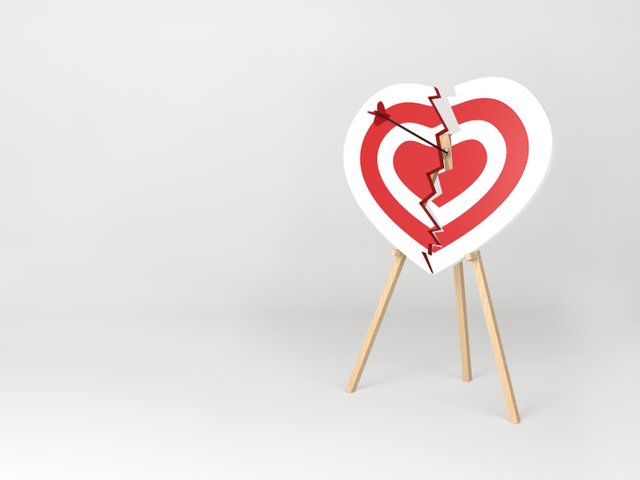
Although the overproduction and response to stress hormones is probably the central cause there may also be other contributory factors.
Some research has indicated that there may be microvascular dysfunction.
This means there is some kind of impairment of the normal function of very small blood vessels which might affect the function of the heart.
This is not necessarily separate from stress hormone effects and may be part of the same process.
There may also be a relationship with cancer and other serious illnesses but this is not certain and needs further research to confirm.
Are Men Protected?
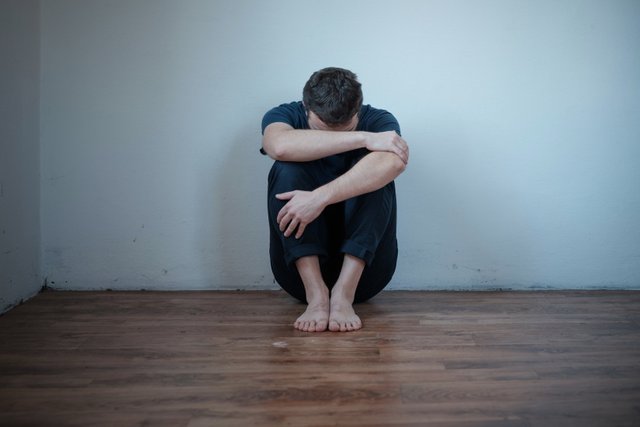
Of interest is the fact that it predominantly affects women and I am puzzled why this would not affect men too assuming that low oestrogen levels are involved.
Men have low oestrogen levels (compared to women) throughout their lives. Why are they not affected in the same way?
This is not really explained in either of the reviews.
Perhaps testosterone has a protective effect in this instance?
Also does testosterone modify the course of the disease?
I say this based on the anecdotal observation where I have noticed widowers dying several months (rather than days) after the death of a spouse.
I am also aware of older research by Parkes et al [3] that looked at mortality in 4486 widowers in the 1960s.
The main finding of this was a 40% increased rate of mortality within the first six months of the death of their wives and these were mainly due to cardiovascular causes.
Is it possible that there is a different, slower acting kind of broken heart syndrome that kills men?
This might mean that people are less likely to directly link the two and so it tends to not be considered as a syndrome like Tako-Tsubo is.
Prognosis

The mortality rate during the first 30 days/during hospital admission is about 10% which is similar to a heart attack (myocardial infarction).
There is a recurrence rate of 11.4%.
One interesting finding is that in most cases people who were appropriately treated can experience a complete return to normal heart function - which is quite different from a heart attack.
There may be a subset of cases (particularly where there is an underlying illness such as a cancer) where the prognosis is worse but there is not a lot of information on these sorts of cases.
The point is that in most cases if people are monitored and managed appropriately this seems to be an entirely reversible condition.
Treatment
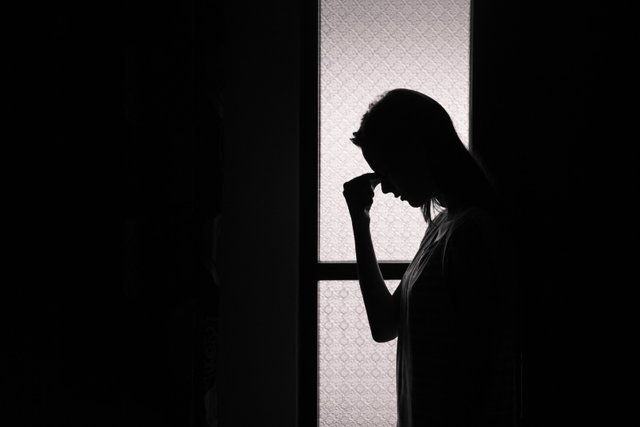
This is still a matter of discussion/debate and specific protocols do not appear to have been developed yet.
Some of the treatments used in treating other types of heart problem may actually make things worse by mimicking the effects of stress hormones.
A recent review from the International Journal of Cardiology by Efferth et al. [2] suggests the use of beta-blockers (a type of drug that blocks the effects of stress hormones) and ACE inhibitors (a type of blood pressure medication).
Blood thinning agents may help to prevent clots which may arise as a result of abnormal mechanical function of the heart.
Other physical measures may also be required for certain complications. Using "anxiolytic" (anti-anxiety) drugs may help in the short term by reducing production of stress hormones.
I think the basic point is that specialist monitoring and treatment is important.
There is also no consensus on how to prevent recurrence.
There is speculation that oestrogen therapy may help but there is not enough research to confirm it.
Complimentary therapies such as acupuncture may help by reducing stress but again there is currently insufficient research to confirm this according to Efferth et al.
Conclusion
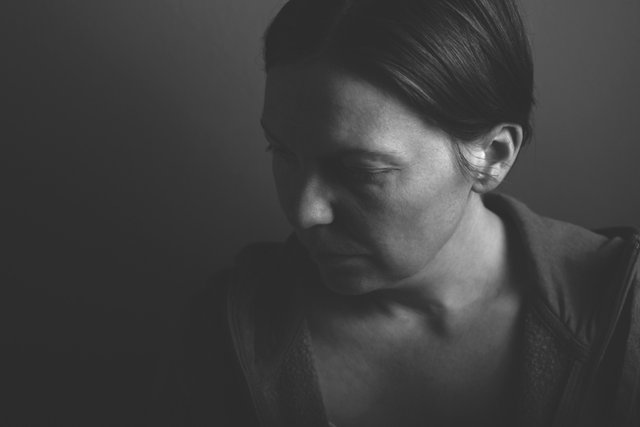
Although the idea of "broken heart syndrome" has existed in the human consciousness for quite some time (possibly forever) it has only relatively recently been described as a medical condition.
There is growing evidence that there is an acute syndrome (Tako-Tsubo Syndrome) in women which can cause death via impaired/abnormal heart function and is related to increased stress hormone activity.
Of relevance is the fact that careful monitoring and treatment can prevent loss of life and changes may be largely reversible in the long term.
The lower susceptibility in men is puzzling (for me at least) and may indicate gender based modification of the disease process and/or a different length of progression which may make cases less prominent.
Medicine as a whole tends to concentrate on the immediate "acute" situation for fairly obvious reasons.
As always further research should help to explore these issues further.
References
Sinning, Ch, T. Keller, N. Abegunewardene, K-F Kreitner, T. Münzel, and S. Blankenberg. 2010. “Tako-Tsubo Syndrome: Dying of a Broken Heart?” Clinical Research in Cardiology: Official Journal of the German Cardiac Society 99 (12): 771–80.
Efferth, Thomas, Mita Banerjee, and Norbert W. Paul. 2017. “Broken Heart, Tako-Tsubo or Stress Cardiomyopathy? Metaphors, Meanings and Their Medical Impact.” International Journal of Cardiology 230 (March): 262–68.
Parkes, C. M., B. Benjamin, and R. G. Fitzgerald. 1969. “Broken Heart: A Statistical Study of Increased Mortality among Widowers.” British Medical Journal 1 (5646): 740–43.
Carey, Benedict. 2016. “Did Debbie Reynolds Die of a Broken Heart?” The New York Times, December 29. https://www.nytimes.com/2016/12/29/health/did-debbie-reynolds-die-of-a-broken-heart.html.
Thank you for reading

Before you go have you filled in the Coinbase form to list STEEM? It only takes a few seconds. THIS POST shows you how.
If you like my work please follow me and check out my blog - @thecryptofiend
Uncredited Images are taken from my personal Thinkstock Photography account. More information can be provided on request.

This makes me think of an anecdote I heard that older people who've lost their spouse live longer when given a pet (dog) than those without pets.
It would make sense I think - I wonder if anyone has researched it.
Again, what a great article: Its composition, argumentation, questioning, and design are all top notch. Thank you for sharing!
I often thought about how I might die and more often than otherwise came to the conclusion that if I don't die of natural processes that I would die from from a broken heart... Reading the title of your post, I couldn't help but have to read it. What a treat.
Thanks again for sharing and namaste :)
Thank you for your kind words and continued support. It is comments like these that make it all worthwhile:)
you brilian
Thank you - very kind:)
you are wolcome
I think broken heart could possibly be a subset of PTSD
There are similarities I think for sure!
It's a great article, thank you! I don't know about the scientific end of things, but I do know that when my uncle Erik died at age 80-something, his otherwise perfectly healthy wife of 60+ years followed a few days later. We said that she "died of a broken heart," but logically speaking, I'm guessing the stress of suddenly being alone to deal with everything after so doing everything with someone she loved deeply is what caused her death.
Thank you. That is quite possible. I think it is sad but also romantic in a sense. I have heard the same thing sometimes happens in animals that mate for life too.
I've often wondered about the existence of dying of a broken heart. I've certainly seen many cases of families having to bury dad within a year of their mother's death. I've also seen survivors thrive after the death of their spouse - like they were reborn. To have any kind of scientific finding about this is truly intriguing. Thank you for your research.
Thank you for your support. I hadn't thought of the flip side!
Great post! I would have said (before reading the post) that you can actually die from a broken heart due to the accompanying stress. I am both happy (more research work is needed) and amazed to see that the answer is far from being 100% certain :)
Thanks! I think it feels like it would certainly be a contributory factor from personal experience.
It's not uncommon to hear of a spouse of a loved one who just passed away, die shortly after... Even though the human spirit is so resilient.., and so much emphasis is put on being "strong" -- we forget how fragile we really are... Great Post!
Yes for sure! Thank you:)
I'm going to do the tests tomorrow! Nice job man! (;
Sorry to hear that hope all works out for you:)
It was a joke my friend! I'm well...I think! (;
OK sorry I thought you meant you were having some heart investigations lol!
I might ....I hope not :)
I believe sorrow causes our heart to fail.
My father had a heart attack and I think I do know why.
I think it makes sense though but yes we all hop it does not happen. Do you think your father had a heart attack due to stress like this?
He was for sure frustrated at the end of his life and heartbroken . He was a very sensitive sweet and too kind man. I believe it ! Yes !
So sad.